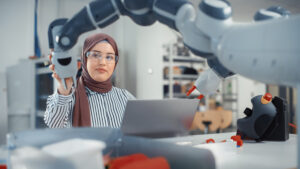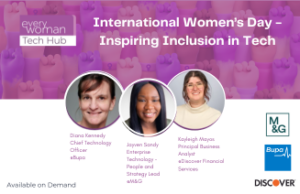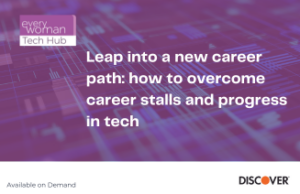Since September 2018, Shrouk El-Attar has worked as an electronic design engineer at British company, Renishaw. In 2019, she was one of just six women from across the UK shortlisted in the Institution of Engineering and Technology (IET) Young Woman Engineer awards, for her involvement in building everything from a machine that detects cancer to an evaluation system for eye surgery.
And that’s just her day-job; outside of her nine to five, Shrouk has been pivotal in opening access to higher education for asylum seekers; campaigns for LGBT+ rights; has been named UNHCR (the UN Refugee Agency) Young Woman of the Year, plus was listed as one of the BBC’s 100 most influential women worldwide. Here, she tells everywoman editor Cherry Casey what drives her success
I first knew I wanted to work in engineering…
When, as a really young child, I realised that the people on my TV screen weren’t real people living inside it. For me, that was amazing and I wanted to know how people did this. I didn’t know then that it was called ‘engineering’; I just thought it was magic and I wanted to be that magician.
Today, my goal is to create the next technological breakthroughs….
By engineering electronics that solve some of humanity’s greatest challenges, like climate catastrophe. I have a particular passion for designing analogue circuits – these form the basics of electronics. Everything around us is analogue and how we exploit their physics and chemistry to create electronics is beautiful.
It hasn’t been an easy journey…
I came to the UK from Egypt suddenly as a teenager in 2007. I didn’t have my correct certificates, I didn’t have enough clothes, and I suddenly didn’t have any friends. It was a traumatic experience and I later discovered that I was an ‘asylum seeker’, although I had never heard this term before.
And so, while I had worked really hard in my youth and was desperate to study engineering, as an asylum seeker it was very difficult to access higher education. I also wasn’t allowed to travel (to try and study elsewhere) or work or claim benefits or anything. It was a huge battle that lasted six or seven years, but eventually I was admitted to Cardiff University, to study electrical and electronic engineering.
It’s something I feel really passionate about now and is one part of my campaigning work…
I’ve been working with Student Action for Refugees (STAR) to improve access to higher education. I’ve spoken in Parliament about it, plus I went to the Welsh Assembly. Through this work we’ve won the right for education for refugees and asylum seekers at more than 70 campuses this year, and we’re still going.
I am hugely thankful for where I am now and I have an amazing support network, but the obstacles haven’t entirely disappeared…
I’m an ethnic minority LGBT woman in a male-dominated environment. I’ve been talked over in meetings, my ideas have been credited to someone else, I’ve been considered ‘aggressive’ where I believe a man would be seen as assertive, and so on. But this doesn’t just happen to me; it happens to anyone of my demographic working in this field.
If we want to attract a more diverse body of people to engineering, it needs to start in childhood…
The toys we’re given have a big influence. By giving girls dolls to look after we’re telling them their primary value is their maternal or caring instinct, which isn’t a bad thing, but boys should have this experience too. Just as LEGO and building toys should be offered to girls just as much as boys.
Showing children that engineering isn’t just a man in a hard hat is crucial too…
Engineering is so broad and creative, so when I was given the opportunity to become a STEM ambassador in schools, I jumped at the chance. I would do talks on the kind of conditions people around the world live in and show how engineering could improve them: making water filters, for instance.
I also wanted to show kids the opportunities they had and how to utilise them, because there are people out there who don’t have that. It was an amazing experience and really shaped who I am today. I thought I’d be teaching the kids, but they taught me and gave me the tools to make tech relatable to people across all genders and ethnicities.
In terms of retaining diversity in engineering, there needs to be a big culture of change…
I can’t think of one principal engineer I know who is a woman, and that’s terrible. It’s very difficult to find role models who represent me in my field. Companies need to show that diversity and inclusion is a genuine value for them by – for instance – rolling out unconscious bias training. Everyone has unconscious bias, myself included, but are often defensive about it.
More impactful policies need to be adopted too, like pay transparency, shared and equal maternity/paternity leave and clear and competency-based role descriptions and career progression. And that’s just to name a few.
I was diagnosed with ADHD as a teenager, and I find it a blessing and a curse…
When you’re used to people thinking that, for instance, you’re rude or not listening properly or too loud, there can be some relief in receiving the diagnosis – a kind of closure. I also think it drives my creativity and is one reason why I do so much outside of work, such as my performing [Shrouk also performs as a belly dancer, raising money to help LGBT+ communities in Egypt].
But it also means I struggle to sit through a training session or an entire meeting and understand what’s going on. I always let whoever I report to at work know that I have this condition, so I can make them aware of how I work, how I absorb information and what’s best for me.
I nominated myself for the IET Young Woman Engineer of Year Award as my previous manager encouraged me to…
I’ve built a Formula1 style race car; built a dexterity evaluation system for surgeons operating on the eye; connected hydroponic crops to the internet; designed circuits for robots, and built a machine that uses electron quantum spin to detect cancer. Being shortlisted means so much to me, as I think women in tech who also do human rights or socially beneficial work primarily get lauded for the latter. So, for it to be recognised that you can absolutely be a belly dancer and an amazing engineer at the same time is fantastic.



